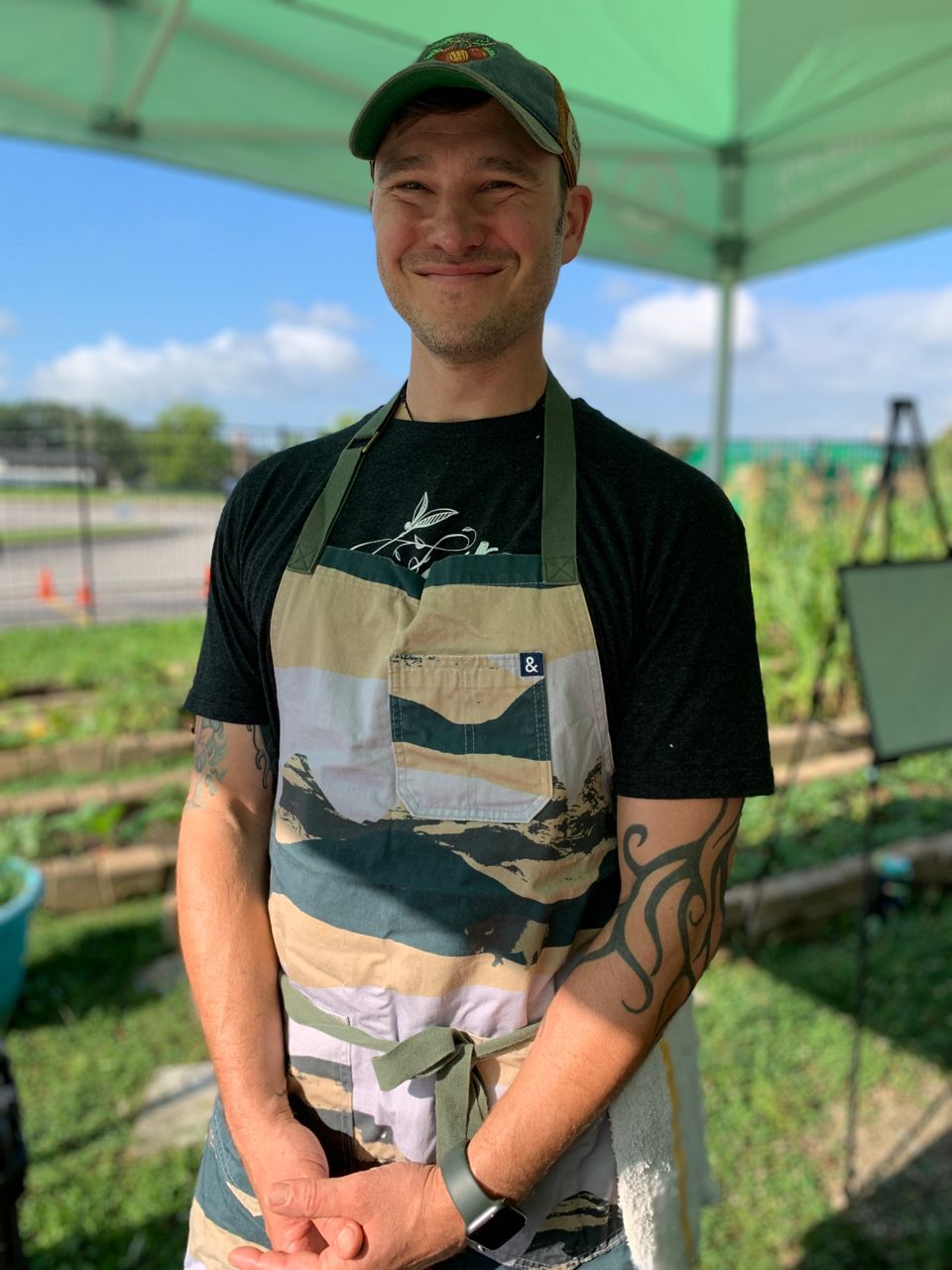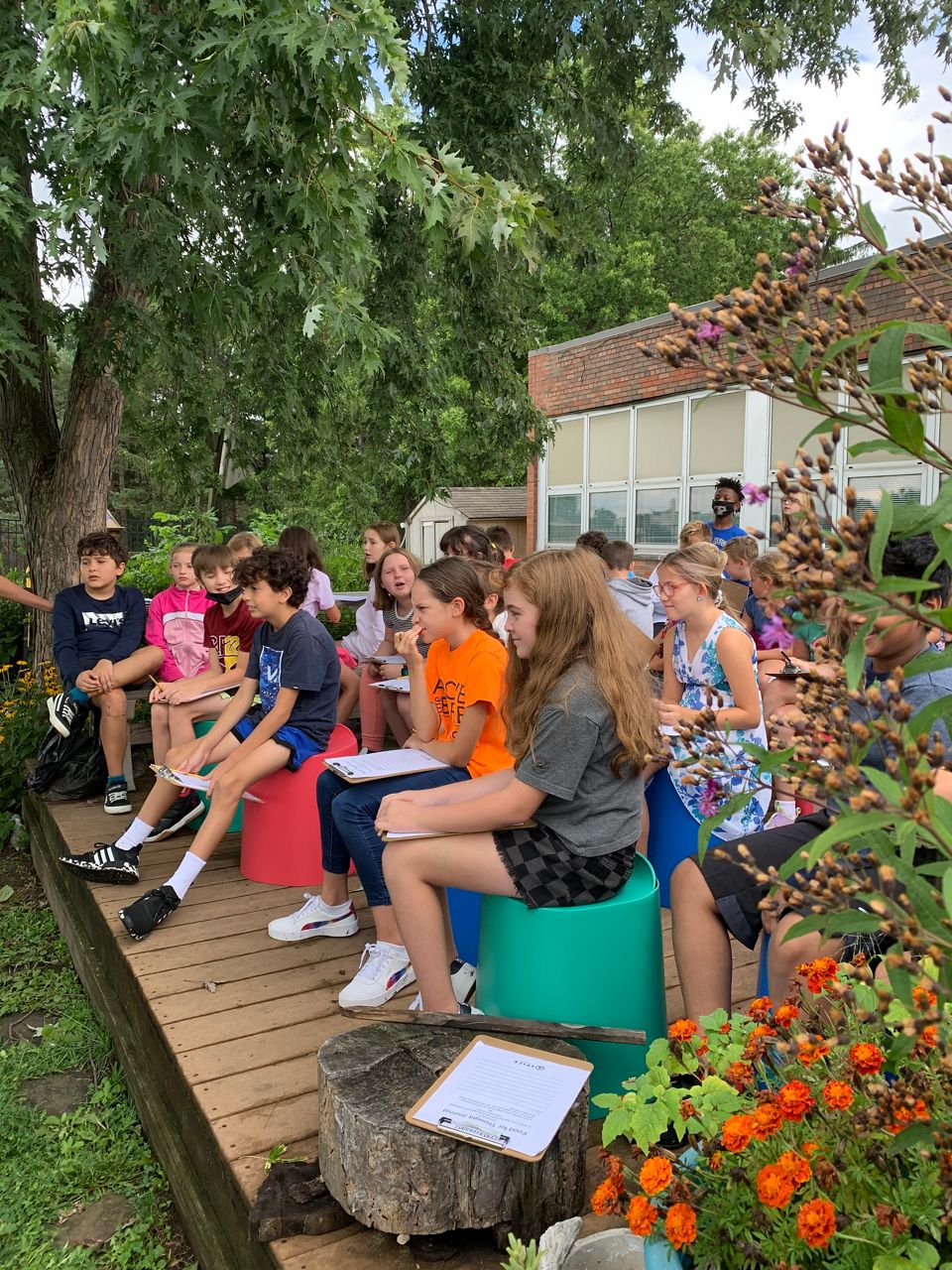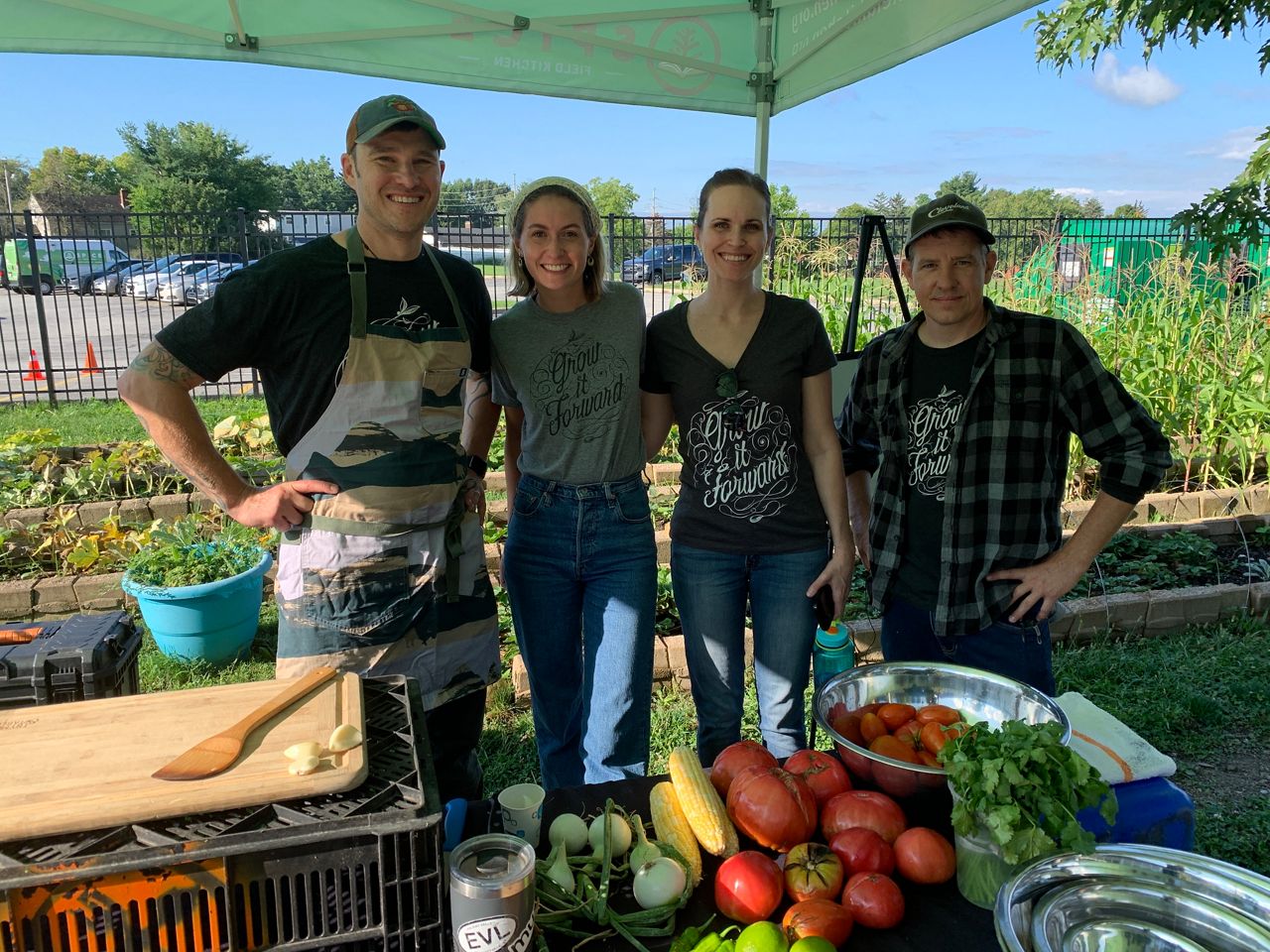PARMA, Ohio — At a school garden in Parma, there's a group of elementary school students who actually like vegetables.
“I didn't know I liked brussel sprouts until we did the brussel sprouts lesson,” said Grady Werman, a fourth grader at Pleasant Valley Elementary School. “I always thought they looked disgusting, but they're actually delicious.”
That’s because for the past few years they’ve been learning not only how to grow them, but how to cook them.
Ben Bebenroth is a farmer, a chef and the owner of Spice Hospitality Group. Within the group is a farm, a catering business, a restaurant and a nonprofit. He said all of which have a mission to change how people interact with the earth.
“I do that through food and through environmental stewardship,” Bebenroth said. “I grew up next to a farm, and I just know how important it is to be connected to the land and to your source of food.”

He calls his nonprofit, Spice Field Kitchen, one of his most important ventures. In the age of fast-food, child obesity and constant technology, he uses his nonprofit to teach people the importance of understanding where their food comes from.
“Really, the nutritional aspect of it when food is not traveling all of these thousands of food miles, and you're able to consume it closer to its source, you're getting a lot more of that life force in it,” Bebenroth said. “It's all tied together. Everything that we're seeing in the health care system right now where we're having some problems. It all starts at the dinner table and that all starts in the garden.”
The field-based programs offer hands-on opportunities to learn the connection between soil health, nutrient density and personal health/wellness. They work with kids and adults and offer workshops in person at local schools, on-site at Bebenroth’s 13-acre farm in the Cuyahoga Valley National Park and even online through remote learning programs.
The school garden, also called the ‘land lab,’ at Pleasant Valley Elementary School, is the first garden Spice Field Kitchen helped install. In that garden they’re growing a variety of tomatoes, potatoes, sunflowers, golden raspberries, kale, peppers, strawberries, asparagus, popcorn, cucumbers and more.
“What I want to give them mostly is that sense of DIY, the fact that they absolutely can do it themselves,” said Steven Baker, chief operating officer at Spice Field Kitchen. “And it doesn't require a great deal of effort, or even planning, it just requires the ability to get after it, and be okay to fail. Sometimes stuff dies on you, and guess what? You're just gonna grow it the next time, and it's going to be great. And you're going to learn something every time.”
Besides tasting better, the team said there are a lot of benefits to eating local, in-season produce. They aim to give people the skills and knowledge to make healthier food choices. Baker said most of the food from the school garden in Parma ends up being used in the school's cafeteria.
“I'm really playing a long game here with these students,” Baker said. “These kids are in their last year at this elementary school. They've had a salad bar and their garden for four straight years. When they go to middle school, guess what? They're going to expect a salad bar to garden, because that's what they know.”

The team doesn’t just help people learn to grow fruits and vegetables; they teach them how to prepare the produce and use them as ingredients in a meal. Bebenroth said he loves the saying ‘food is medicine’ but said it’s really not. Choice is.
“Food just sits on the counter and waits for you," he said. "You have to make a conscious effort and a conscious choice to prepare that food in a way that makes sense for your body and for your family and for the time of the year, a commitment to the land and gardening, a commitment to education, and understanding that no one can make better food choices, without the ability, the equipment, the education, the understanding, and then access to healthy food.”
Bebenroth said he wants people to learn that the Earth gives to us so that we can give back to the Earth.
“That's why I think it's so important that we're starting at the dinner table and in the classroom, because that's really where the conversation starts,” he said. “And we can start to understand the full impact of my commitment to this region, to this land, to this ingredient is actually, it's a commitment to my own body and to my own mind, and spirit.”

He said he thinks a connection to natural systems is essential for a bountiful, healthy life. He was raised connected to the Earth, and played outside every day. With the increased consumption of technology in today’s society, he said it’s more important than ever that we slow down a bit and get back to our roots.
At Bebenroth’s house, he said his family practices mindfulness. He said he has a no phones at the dinner table rule as he wants his kids to slow down not only their pace of life, but their style of eating. He said when they’re mindful of what they’re eating, they’re experiencing it, which leads to appreciation.
“Just to be able to live by that and introduce kids to that like sitting, eating and appreciating and talking about what we're experiencing, you know, that can give way to sharing gratitudes at the dinner table,” Bebenroth said. “What was the best part of your day? What are you thankful for right now? Those conversations don't happen when you're, you know, shoveling a burrito in and TikTok’s in the other hand.”
By learning the true meaning of farm-to-table, they said many people look at food in a new way.
“I like eating more healthy food than fast food,” said Emily Werman, a 4th grader at Pleasant Valley Elementary School.
It’s the start of a healthier Ohio, and a healthier world, one lesson and one garden at a time.
“Not a lot of first through third graders are after kale and brussel sprouts," Bebenroth said. "But in this school, they absolutely are,”
Spice Field Kitchen has a fundraiser coming up on Oct. 8 at Spice Acres in northeast Ohio. For more information about the fundraiser or the nonprofit, click here.



